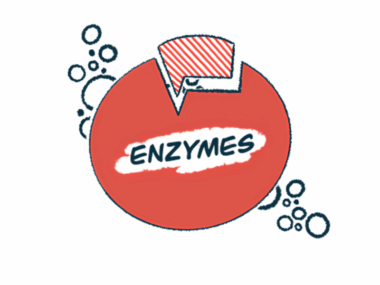Phase 2 trial of NEU-411 for LRRK2-driven disease begins dosing
Patients can take at-home genetic test to find out if they're eligible for the trial
Written by |

Neuron23 has dosed the first participant in its Phase 2 clinical trial of NEU-411, an investigational treatment for early Parkinson’s disease that targets overactivity in the LRRK2 enzyme.
The therapy may benefit individuals with genetic mutations or variations in the LRRK2 gene, which is a key contributor and common genetic driver of Parkinson’s, according to the company. Neuron23 also announced the close of a $96.5-million round of investment to support treatment development efforts.
This financing “represents further endorsement of Neuron23’s industry-leading approach, which leverages state-of-the-art precision medicine and patient identification to deliver NEU-411 to people with Parkinson’s disease who are most likely to benefit from LRRK2 inhibition, increasing probability of success in the clinic and bringing the right therapy to the right patients,” Nancy Stagliano, PhD, CEO of Neuron23, said in a press release.
Recruiting 150 participants with Parkinson’s likely responsive to NEU-411
The company will use genetic testing to identify and recruit approximately 150 participants whose Parkinson’s is most likely to respond to NEU-411. Individuals ages 50 to 80 with a Parkinson’s diagnosis can request an at-home genetic test of their saliva to determine their eligibility. The trial, dubbed NEULARK (NCT06680830), is currently enrolling at several U.S. sites and will expand globally.
Mutations in LRRK2 can lead to inherited Parkinson’s by increasing LRRK2 enzyme activity, which disrupts vital cellular processes. This disruption can cause toxic protein clumps, potentially leading to inflammation and nerve cell death. Although LRRK2 mutations account for about 2% of Parkinson’s cases, up to 30% of patients with non-inherited forms may still have overactive LRRK2.
Neuron23 has also identified several single nucleotide polymorphisms (SNPs) — small genetic variations in LRRK2 — that may contribute to this overactivity.
NEU-411 is an orally administered small molecule designed to reduce LRRK2 activity. In a Phase 1 trial (NCT05755191), the treatment was well tolerated in healthy adult volunteers, according to Neuron23.
Now, the company is testing the therapy in people with Parkinson’s who have LRRK2 mutations or SNPs thought to increase LRRK2 activity. Through a partnership with Sano Genetics, Neuron23 is using at-home genetic screening to identify and enroll this target population.
“For the first time, we are using a precision medicine approach to identify and enroll patients with LRRK2-driven disease,” said Aaron Ellenbogen, a neurologist and NEULARK investigator.
Digital tools to track symptoms in real time
Participants in the study will be randomly assigned to receive NEU-411 or a placebo once daily for 52 weeks (about one year). The main goal of NEULARK is to measure changes in motor and nonmotor symptoms of Parkinson’s using smartphone-based digital biomarkers developed by Roche Information Solutions. These tools will track movement, tremor, cognition, and other symptoms in real time. Participants will also undergo neurological evaluations using the Movement Disorder Society’s Unified Parkinson’s Disease Rating Scale.
“This trial’s design, incorporating a unique digital biomarker to frequently monitor disease progression, enables us to capture exceptionally precise, real-time data on both motor and non-motor symptoms, offering unparalleled insights into how the disease evolves,” Ellenbogen said.
Researchers will also monitor safety and side effects until two weeks after the end of treatment. Data from the trial are expected in 2027.
“The dosing of the first patient in the NEULARK clinical trial marks a pivotal milestone in Parkinson’s disease research,” Ellenbogen said. “With multiple innovative elements cohesively working together in the NEULARK trial, we’re poised to take a significant step forward in the pursuit of effective treatments for Parkinson’s disease.”






